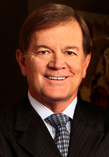© 2018 The Texas Lawbook.
By Natalie Posgate
(May 1) – A battle is underway within the State Bar of Texas, and the election to name the future president of the 100,000 lawyers in the state ends today. The race has been nasty, but a few questions remain:
Does the bar need an “outsider” or an “insider” as its leader? Is the organization actually in need of fixing? Does anybody really care?
These are the issues that dominated this year’s campaign, as well as the past few annual elections. But for the moment, one question is already decided. For the first time ever both candidates took the “outsider” path to their place on the ballot, primarily by gathering signatures on a petition.
Those candidates, Lisa Blue of Dallas and Randy Sorrels of Houston, are both plaintiff’s lawyers. In her campaign, Blue has marketed herself as an outsider, painting Sorrels as an “insider” because of his previous service as a director on the State Bar board.
In an interview with The Texas Lawbook, Sorrels questioned the pejorative characterization of “insider.”

“Does it mean someone who has been involved in the profession for 30 years?” said Sorrels, who has also served as the president of the Houston Bar Association and other positions on various lawyer organizations. “If they want to call that an ‘insider’… I call it someone who cares. “
Blue did not respond to requests for an interview.
Like the organization itself, the state bar’s presidential election has been undergoing a transformation. Four years back, the bar saw its first petition-backed candidate in at least 20 years. Although the candidate Steve Fischer lost, he inspired Joe Longley to run in 2017, and become the first petition-backed candidate to win an election. Blue supported Longley in that election, and Longley now supports Blue.
Though they entered the race by petition, both Blue and Sorrels were also approved by the State Bar board of directors as official candidates on the ballot after no one was willing to run against them because of their months-early lead on campaigning.
Until recently, candidates for president-elect were selected after the State Bar board’s nomination committee identified a group of potential candidates well-fit for the job and narrowed it down to two people who were requested to run.
Dallas lawyer Chad Baruch, who lost against Longley in last year’s runoff election, was one of the board-recruited nominees. He described the “insider” and “outsider” labels being stuck on candidates as the product of a “false narrative.”

“The insider narrative is complete bullshit,” said Baruch, who pointed out that he never asked to be nominated. “I mean seriously – I was a solo practitioner in Rowlett. I’m from a little town in Wisconsin. The idea of me as a bar insider is laughable. I’m not a big firm person; I’ve never been part of that in-crowd. Frankly, I was shocked when they nominated me because I thought they considered me a loose cannon.”
He pointed out that both Blue and Sorrels “have lengthy histories of professional involvement.” In terms of Sorrels’ previous experience with the State Bar board, “I don’t know when we decided knowledge and experience are drawbacks.”
Baruch said he thinks the election is going to be “very close.”
“Lisa is going to benefit from a massive push by the plaintiffs’ bar and a lot of people who are hostile to the State Bar,” he said. “Randy is going to benefit by the much higher percentage of lawyers in the Houston area.”
Still, there are a few issues behind the labels, as well as matters of style.

Emails from Blue’s campaign or her supporters indicate she’s running to fix the State Bar’s “bloated” $50 million budget, restore members’ rights to vote on dues increases (since the Legislature recently approved the State Bar to increase rates twice in the next 10 years), and implement “essential” overall reforms. Evidence of State Bar irresponsibility includes an embezzlement scheme that surfaced several years ago in which a former membership director stole $550,000 — a frequent talking-point of successful Longley’s campaign.
Sorrels — the son of an Army vet who served two tours in Vietman — emphasizes service.
“[My dad] is someone who said you have to serve, whether you’re a doctor, a lawyer, a plumber or a janitor, you have to do something besides your job,” Sorrels told The Texas Lawbook.
He also has a few talking-points. After years of steady budget creeping, Sorrels said he thinks the State Bar should be run more like a business, with its objective of adding more values to its membership base.
In his campaign, Sorrels has also proposed initiatives: a statewide courthouse security system akin to TSA Precheck in which lawyers can get through expedited security throughout any state court in Texas; unifying the state’s e-discovery process so that every county is on the same electronic system (similar to how all federal courts are on PACER), and an online “Texas lawyers’ briefcase” in which practitioners can upload templates of work they are proud for use by peers or corporate general counsel.
Sorrels said if he loses, it will be a result of the negative campaign. But he adds, “whether I win or lose isn’t going to lessen my desire to have a better profession.”
That overall negativity of the campaign bothers some lawyers.
“I don’t even know why Joe or Lisa wants to be State Bar president,” said Dallas attorney Randy Johnston, who is law partners with Baruch. “I know the kinds of things they say – the embezzlement or lawyers’ right to vote on due increases. I don’t spend nights worrying about that. Everything in my life has gone up.”

“I think the election has turned into an incredibly unbelievable shouting match and attack strategy similar to the Trump campaign,” Johnston said.
Some have characterized the rise of petition-driven candidates as evidence that a growing – or at least more vocal – group of lawyers are dissatisfied with how the organization is run. It’s at least as likely, others argue, that only a small number of lawyers actually gives a damn about state bar politics.
According to State Bar spokesman Lowell Brown, only 30,509 lawyers had cast their ballots as of the end of Sunday – and that represents a record number of total votes . Even though it only takes about 90 seconds to vote online, that amounts to just under 30 percent of the 102,025 ballots the State Bar sent out for this election.
Since 2001, voter turnout has been 30 percent or lower, says Brown. The most ballots ever (30,138) were cast last year in the runoff election between Longley and Baruch.
Johnston used to be apathetic toward the State Bar, joining the masses of lawyers who “think the State Bar is largely irrelevant in their lives.” But he says he started paying more attention after he became law partners with Baruch, who raised his attention to “all the incredible stuff the State Bar does for Texas lawyers.”
Appellate attorney Chad Ruback said he didn’t endorse either Blue or Sorrels but thinks they’re “both good people and have servants’ hearts,” and thinks either one would make a great State Bar president.

“In my opinion insiders aren’t doing a bad job,” said Ruback. “Is there room for improvement? Absolutely. I’m very grateful for outsiders to bring to light issues that do need improvement.
“Ultimately it is ‘cool’ to vote for the outsider,” Ruback said. “We don’t like following the authority. It’s just our nature as lawyers; we like questioning the authority. In fact, we went to law school because we question authority.”
Ruback added: “The ultimate question is whether we are better being led by an outsider, or better off being led by an insider.” He says next year — when Longley’s term as president begins — will be telling.
“It will depend on how much he can accomplish,” which he says will depend on how much support Longley receives from the board of directors.
But W. Frank Newton thinks it doesn’t make much difference; it’s apathy that truly rules the State Bar of Texas.
“The rank and file lawyers in the state don’t know how the bar’s being run and don’t care to know how the bar’s being run,” says Newton, a former dean of Texas Tech University’s law school who served as the State Bar’s president of the board of directors in 1997. “That’s been true in the past, it’s true today and it’s true to how it will be in the future. If the organized bar was central to their practice, it would be different. Because it’s not, it doesn’t matter too much to them.”
Newton takes issue with the idea that more people are becoming dissatisfied with the State Bar. To “informed writers and thinkers,” he says, a low voter turnout suggests “most voters are content with what in general is going on.”
At the end of the day, Newton said, the outcome of the State Bar presidential election doesn’t matter: the day-to-day business of the organization belongs to the executive director.
“The executive director of the bar runs stuff; the state bar president gets to wear poofy medals and strut around asking what they can do to make the State Bar better.”
To achieve more would be difficult within a term of only one year, Newton says. “Some very smart people – lawyers who are very gifted – ought to know better than fool themselves into thinking that this is all terribly important.”
© 2018 The Texas Lawbook. Content of The Texas Lawbook is controlled and protected by specific licensing agreements with our subscribers and under federal copyright laws. Any distribution of this content without the consent of The Texas Lawbook is prohibited.
If you see any inaccuracy in any article in The Texas Lawbook, please contact us. Our goal is content that is 100% true and accurate. Thank you.
